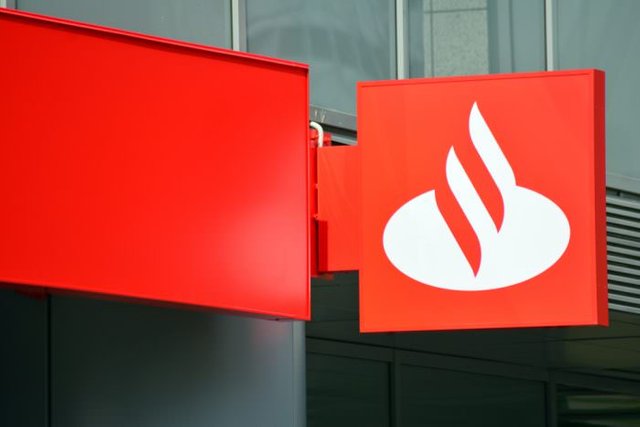Blockchain can unite other new technologies
Blockchain’s high-level encryption, permanent recording and decentralized nature are increasing being seen as an attractive way to improve existing technologies and make processes more secure and more efficient.
While some areas that can benefit from the technology are quite easy to bring to mind – tracking high value products all along the supply chain, for example – others are a little less obvious.
Who can you trust?
With the digital age has come the trust economy where your reputation is what gets you business or persuades others that you are worth dealing with.
Organisations such as Uber and Airbnb rely on a mutual ratings system. Was I a good driver? Would I recommend you to other hosts? Anonymous ratings on the internet sway purchase decisions.
But how do you know that what you are reading online is genuine? Blockchain can help verify the source of the information with stored details that can be tailored to particular uses. So, for instance, financial records, career history and medical records can be made available to verify claims.
Companies can share data to show that they are trustworthy and good to do business with. And, quite importantly, stored information can be used to prove that a person or business actually exists.
Deloitte found in its 2017 report Blockchain: Trust economy that blockchain was an ideal partner for the trust economy: “The fundamental concept of trust is being tailored to meet the demands of the digital age, with blockchain cast in the role of gatekeeper of reputation and identity”.
Deloitte suggests that this role could have widespread benefits, saying “this latest use case may be blockchain’s most potentially valuable to date”.
Beverly Macy of UCLA agrees with this view, pointing out that new ways of doing business require new safeguards. She says: “A new form of trust and a new way for content creators to own their data is required. The promise of blockchain is huge.”

Blockchain can help AI think more clearly: Shutterstock
Artificial intelligence
Another modern phenomenon that could benefit from blockchain is artificial intelligence. AI is only as good as the intelligence supplied to it. Blockchain can help increase the effectiveness of AI by supplying it with more reliable data, models and actions.
And smart contracts can be used to ensure that AI can only perform certain actions, making catastrophic unintended consequences much less likely. And auditing the decisions made by AI’s algorithms is made easier by knowing that all the data is the same now as when it went in.
It is not just one-way traffic though as AI can boost blockchain performance by refining hashing algorithms to make them much less power hungry.
There is increasing interest in the convergence of the two technologies. In May, the Decentralized AI Alliance (DAIA) was set up to bring together practitioners working at the intersection of AI and blockchain. Dr Ben Goertzel of SingularityNET, one of the DAIA’s founder organisations, said decentralized AI was a chance to challenge big business.
He said “DAIA is more than just another industry organization. It’s a movement — a movement by a network of adventurous technologists and entrepreneurs around the globe, aimed at wresting control of the world’s AI and the data and computing power that feeds it from the handful of big tech companies and big governments that are currently threatening dominance.”
Internet of Things
Another less obvious area that can benefit is the Internet of Things. This is the ability of everyday objects such as heating systems to send and receive information from the internet via a built-in computer device. So you can turn on the heating from your smartphone before you get home or stop it from coming on if the weather springs a surprise and is better than expected.
This market has been growing steadily but it is incredibly vulnerable to attack. Devices that have been found to be hackable include heart pacemakers and wifi baby monitors. So patients could in theory be given shocks remotely and nursery footage be viewed by random people on the internet.
Using blockchain to control access to data from IoT devices provides an extra level of security, taking advantage of the technology’s high encryption standards and decentralization. And, as with AI, there is also the advantage that the audit trail cannot be tampered with.

Wifi baby monitors were found to be very easy to hack: Shutterstock
Blockchain supply chain
The advantages of blockchain to supply chains are already being appreciated. As well as linking goods to RFID tags or barcodes it can record the transfer of assets between supply chain nodes, track orders and shipments, verify the provenance of goods, for instance, whether they are organic or not and share information with suppliers and vendors.
RFID or radiofrequency ID uses tags to track the movement of products. Although RFID tags have been around since the 1970s adoption has been slowed by factors such as cost, privacy and security concerns, and system incompatibility.
Using blockchain technology can help overcome these drawbacks by storing all information centrally and not on tags and local databases. Privacy can be maintained through permission systems giving appropriate access to information.
Making things more mobile
Blockchain-based apps (dapps) are quite niche at the moment but according to some they are about to have their moment – Jupiter Research named dapps as one of its three disruptive technologies to watch in 2018.
Speedy money transfer applications are a popular option, with Santander’s One Pay FX app, for instance, letting its UK customers transfer euros or US dollars for clearance in a day compared to three to five days for traditional wire transfers.

Santander has speeded up money transfers using blockchain: Shutterstock
Convergence
Blockchain is making friends with a number of different technologies and the new few years will be an interesting time of seeing whether these turn out to be short-term liaisons or life-long friendships.
Post written by Claire Veares
Versatile journalist currently covering cryptocurrencies and House of Lords debates.
Follow OpenLedger!